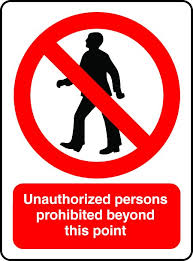Home > Wall Street > What is Unauthorized Discretionary Securities Trading?
What is Unauthorized Discretionary Securities Trading?
 Unauthorized trading occurs when a broker buys, sells, or exchanges securities without proper authority from the investor. FINRA Rules 2510(b) and 2020 and NYSE Rule 408(a) prohibit a broker from making or exercising discretionary trading authority in a customer’s account. A broker must always discuss all trades with the investor before executing them unless an investor has given the broker written, not oral, discretion to make trades in an account.
Unauthorized trading occurs when a broker buys, sells, or exchanges securities without proper authority from the investor. FINRA Rules 2510(b) and 2020 and NYSE Rule 408(a) prohibit a broker from making or exercising discretionary trading authority in a customer’s account. A broker must always discuss all trades with the investor before executing them unless an investor has given the broker written, not oral, discretion to make trades in an account.
The Securities and Exchange Commission (SEC) has found that unauthorized trading constitutes securities fraud under the Securities and Exchange Act of 1934 and Section 10b and rule 10b-5. The SEC has also issued an Investor Alert to warn customers and brokerage firms of the common signs that can indicate unauthorized trading. Under the federal anti-fraud provision an investor must show either a material misrepresentation or omission of information that caused the securities transaction. Unauthorized trading has been found to be a material omission of information because no omission could be more material to an investor than the failure of the broker to inform the investor of purchases and sales in their account.
Unfortunately, when a broker makes an unauthorized trade in a client’s account many brokerage firms attempt to hold the investor responsible for the trading. The brokerage firm often claims that if the investor does not object to the trade immediately, the investor ratifies the trade when the investor receives confirmations and/or monthly statements reflecting the transaction. However, it is clearly the broker’s responsibility to obtain the client’s permission for trading. A client’s inaction after the trade is made cannot create the written authority that was required to engage in the transaction in the first place.
Recently, the Financial Industry Regulatory Authority (FINRA) sanctioned George Winneberger (Winneberger) for unauthorized trading in a client’s account. From January 1987, through October 2010, Winneberger was associated with Southwest Securities, Inc. (Southwest). In October 2010, Winneberger was permitted to resign from Southwest after admitting to using discretion in an account without written authorization. Thereafter, Winneberger has become a registered representative with Raymond, James & Associates, Inc.
According to FINRA, a client of Winneberger’s gave him oral authorization to exercise discretion in her securities trading accounts. Winneberger periodically discussed the status of the accounts with the client. However, the client never provided Winneberger with any written authorization to exercise discretion and the brokerage firm’s compliance policy did not allow for the exercise of discretionary trades without written authorization. In total, FINRA alleged that approximately 650 trades were placed in the customer’s accounts and a substantial number of the trades were placed through the use of discretion.
By acting with discretion without written authorization or approval, FINRA found that Winneberger violated NASD Rules 2510 and FINRA Rule. As a sanction, FINRA suspended Winneberger for fifteen business days and imposed a $7,500 fine.
If you believe that you were the victim of unauthorized trading, the attorneys at Gana LLP can help you determine the type of account you own, whether the trade was authorized, and how to proceed against the brokerage firm.
